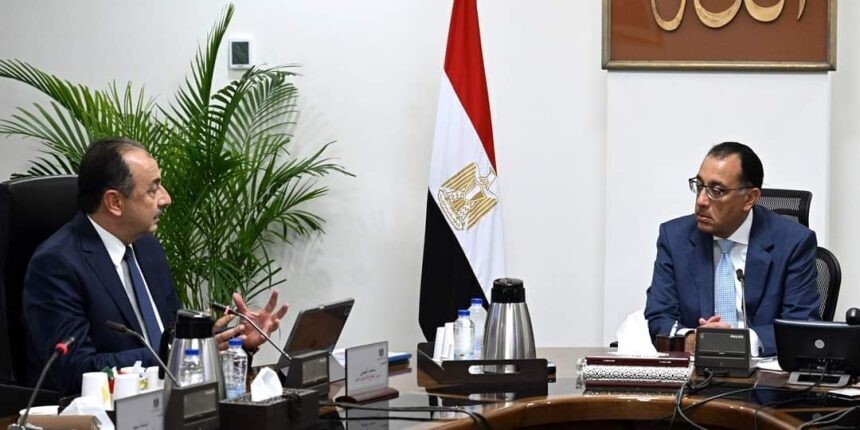您想继续阅读英文文章还
是切换到中文?
是切换到中文?

THINK ALUMINIUM THINK AL CIRCLE

Egyptian Prime Minister Mostafa Madbouly met with Minister of Public Enterprise Sector Mohamed Shimi to review progress on industrial projects across the textile, aluminium, and automotive sectors. Shimi provided a detailed update on the initiatives within the Holding Company for Spinning, Weaving, and Ready-Made Garments.

He announced that the company has streamlined its structure by reducing its subsidiaries from 31 to 9 and has created a dedicated sales and marketing subsidiary. This reorganisation is designed to improve the efficiency of the spinning and weaving industry. Additionally, the company is conducting trials on short-staple cotton cultivation to lower foreign currency expenditures, enhance cotton fibre quality, and boost yield per feddan.
Aluminium in Egypt
Regarding aluminium projects, Shimi highlighted the significant global interest in aluminium, noting that the trading value of aluminium products reached $230 billion in 2023 and is projected to grow annually by 6.2 per cent, potentially reaching $394 billion by 2032. Aluminium Company of Egypt (Egyptalum), the country’s sole aluminium producer, has an annual production capacity of 310,000 tonnes.
The company plans to export 60 per cent of its production while selling the remainder domestically. Key export markets include Italy, Germany, Greece, and Poland, which together accounted for 96 per cent of Egypt’s aluminium exports. In 2023/2024, Egypt’s aluminium exports totalled 174,000 tonnes, valued at $452 million.
Ongoing projects at EGAL
Shimi outlined ongoing projects at Egyptalum, including the construction of a 50,000-tonne alumina silo and a complete overhaul of the existing production line to sustain a capacity of 310,000 tonnes for the next 20 years. Future projects involve establishing a new alumina refinery with a capacity of 2 million tonnes per year, designed to meet the company’s annual needs and export any surplus.
Additionally, Egyptalum plans to install a new production line with a capacity of 200,000 tonnes, aimed at replacing 60 per cent of current imports and increasing the company’s total production capacity to 510,000 tonnes annually. Future plans also include building a new aluminium plant with a capacity of 600,000 tonnes, which would eliminate the need for imports and meet local market demand. This expansion could position Egypt as a leading aluminium producer with a total capacity of 1.1 million tonnes per year.
Other projects
Shimi also noted that the government has established guaranteed prices for Egyptian cotton at EGP 10,000 per quintal in Upper Egypt and EGP 12,000 per quintal in Lower Egypt. He also discussed the revival of the MISR for Artificial Silk and Polyester Fibres Company after a 12-year hiatus. Prime Minister Madbouly focussed on the significance of advancing polyester production and expressed the government’s readiness to support any expansions or new projects in collaboration with the private sector.
Prime Minister Madbouly pointed out the need for rigorous on-ground follow-up to ensure the timely completion of development projects across various factories. Shimi also updated on the automotive sector, focusing on El Nasr Automotive Manufacturing Company.
He outlined the infrastructure development plans for the company’s factories, which include upgrading the passenger car factory, improving assembly lines, and enhancing testing facilities. Shimi highlighted several agreements with Chinese companies for local manufacturing and the supply of buses, light commercial vehicles, and electric cars. These agreements cover components, warranties, and after-sales services.
Responses








